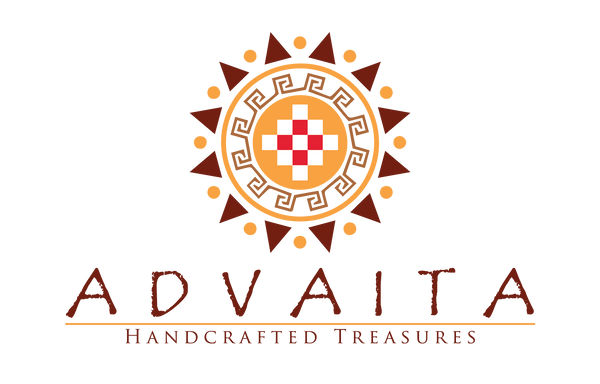Maya Angelou - the famous american poetess who passed away on 28th May 2014, wrote -
"When members of a society wish to secure that society's rich heritage,they cherish their arts and respect their artists.The esteem with which we regard the multiple cultures of our country, enhances our possibilities for healthy survival & continued social development."
She wrote this about the USA, but it's so true for every country including ours (India) .
I've highlighted some key words in blue & these words lead to mean 'sustainability'
So, will just cherishing and feeling an affiliation for arts & crafts originating from one's country, help in their sustenance? It will but only to an extent. We are all invariably attracted to art forms that bear similarities with our culture, to what we've seen and experienced as children. It's like being drawn to your home country no matter which part of the world we reside in. So, our buying behaviour & preferences will continue to be influenced by our background, but just this is not sufficient for craft forms to survive on.
For ancient art & craft to continue finding relevance, they have to be turned into objects that fulfill a certain utilitarian value. Thus, taking ancient art forms & transporting them from just wall decor articles/paintings to designs on clothes, decorative boxes, lampshades, bags & purses, will increase relevance. These will be more visible & will find greater marketability as products of utility.
Then, there is the other challenge of ensuring affordability. Its important to discuss affordability in this context since a lot of handicrafts are become increasingly expensive given the shortage of labour or hands.
If art & craft objects become expensive, there will be few takers and their possession & hence knowledge will be restricted to only certain sections of the society.
Take some of Orissa's well know handicrafts for instance. With prices of the handloom sambalpuri Ikkat rising year after year, this beautiful hand woven fabric is slowly something only the well to do can afford now. Prices of sambalpuri fine cotton dupattas start at Rs 800/- or so and per meter rates of fairly standard patterns start at Rs 250/- or so.
The same holds true for beautiful silver filigree which was still affordable 5 years back; but is now expensive given the fact that the inherent cost of the metal itself has gone up from Rs 20,000 per kilo in 2008-9 to 65000 levels in 2011 and currently at 40,000 levels per kilo. Added to that the making charges or labour charges have also witnessed a huge increase given the lack of trained artisans.
Liberalization i.e. the opening up of the Indian economy which brought in so many global companies to India has created so many jobs. Add to this the process of urbanization (migration to cities) creating access to greater & varied options for livelihood generation this is one of the biggest reasons for the lack of manpower / artisans engaged in these craft forms.
Poor artisans & now their children who would have normally taken up these art forms which are passed down from generations, now prefer better paying jobs in cities.
Visibility & accessibility which thanks to the internet is much higher today than ever before have helped in the development of art forms from various corners of the world. Artisans & traders of handicrafts find it easier to find buyers & markets abroad for bulk export. The e-commerce phenomenon has helped reaching out not just to people in the same field but to retail individual customers, & this has been a blessing.
So while there are some negatives, there are enablers too. The question is how do we address the issues while building on the enablers.
My subsequent blog on ' How the value chain can really add value' touches upon what roles various players such as the Government, middlemen, artisans themselves & we as customers can play to encourage sustenance.
Advaita Handicrafts designs & sources handicrafts from artisans & Self Help Groups.
Visit us at http://advaitahandicrafts.com/ or https://www.facebook.com/Advaitahandicrafts or http://www.goalseek.in/advaita/ to know more on our products.
You can also write into advaita@goalseek.in with enquiries and product related queries.
Some product innovations & designs to improve sustenance of the Patachitra & Saura forms of painting originating from Orissa.
|
Decorative Box with Patachitra hand painting |
|
Jewellery Box with Saura art |
|
Paper Mache' decorative boxes with Saura art |
|
Serving tray with Saura Art |
